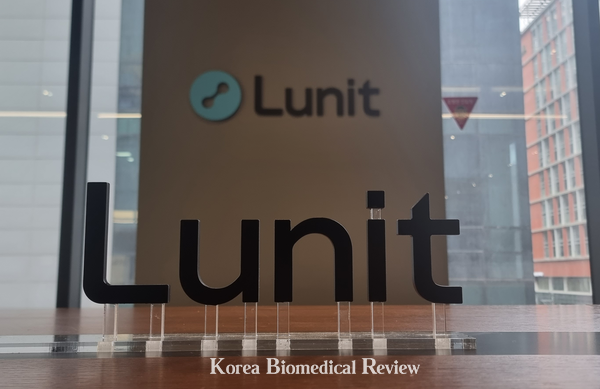Lunit, a Korea-based medical artificial intelligence (AI) company, said it has signed a supply agreement with Akumin, a leading U.S. diagnostic imaging and cancer treatment service provider, to introduce its AI-powered breast cancer diagnostic solution, Lunit Insight DBT, across Akumin’s nationwide network.
Headquartered in Plantation, Florida, Akumin operates more than 150 imaging centers and a fleet of mobile diagnostic units across 47 U.S. states, partnering with over 1,000 hospitals and physician groups. The company provides outsourced diagnostic and oncology services to medical institutions that lack the capacity to build such facilities in-house.

Through the partnership, Akumin will deploy Lunit’s Insight DBT -- a solution that analyzes digital breast tomosynthesis (DBT) images to support radiologists in detecting breast cancer.
The tool is particularly well-suited for the U.S. market, where 3D mammography adoption is rapidly expanding. By leveraging Akumin’s extensive network, the deal is expected to significantly broaden patient access to AI-driven cancer diagnostics.
Akumin’s decision reflects a strategic push to enhance diagnostic quality and improve patient accessibility through advanced technologies.
For Lunit, the collaboration marks another milestone in strengthening its U.S. presence as demand for AI solutions in medical imaging continues to grow.
“Although our solutions are already in use at numerous imaging centers across the U.S., this partnership with Akumin will allow even more patients nationwide to benefit from AI-powered cancer diagnostics,” Lunit CEO Brandon Suh said. “We will continue to focus on developing and expanding solutions that address real clinical needs and drive a paradigm shift in global cancer diagnosis.”
Akumin Chief Medical Officer Nasir Siddiqui also said, “Lunit’s AI solution, backed by robust clinical data and proven real-world performance, provides tangible value for both patients and physicians.”
With this adoption, Akumin’s diagnostic services will reach a new level in terms of patient satisfaction and clinical excellence, Siddiqui added.
The agreement comes as the U.S. healthcare system faces mounting challenges, including rising demand for screenings, a shortage of radiologists, and the high costs and long timelines associated with building in-house imaging facilities. By incorporating AI-powered diagnostic tools, companies like Akumin aim to deliver more accurate and efficient services with limited resources, offering a potential solution to these structural barriers.
Related articles
- Lunit doubles H1 revenue on surging US sales, AI biomarker demand
- Lunit joins forces with Microsoft to globalize cancer diagnostic AI via Azure
- Lunit's AI chest X-ray tool receives Europe's stricter CE MDR certification
- Lunit to unveil 12 AI-powered oncology studies at ASCO 2025
- VUNO, Lunit need policy clarity as deferral system deadline approches
- Volpara reaches break-even early as Lunit integration advances
- Lunit secures French public hospital contract for breast cancer AI solutions
- Lunit, Agilent partner on AI companion diagnostics
- Lunit partners with CellCarta to expand global clinical trial use of AI biomarker platform

